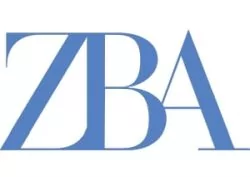Introduction
The unprecedented upheaval caused by COVID-19 has affected normal performance of contractual duties. Logistical issues, health and safety risks and governmental decreed 'lock-downs' for extended periods of time have up-ended life and commercial activity on an unparalleled scale. A post-Covid world is beset by delays, payment defaults and a failure or refusal to perform contractual promises and stipulations.
Parties to a contract are anxious to understand what their rights and remedies are in the prevalent circumstances. Many inquires relate to whether parties or their counter-parts can be legally excused from discharging contractual obligations by recourse to the doctrine of force majeure or frustration. Force majeure is a contractual stipulation, as opposed to the doctrine of frustration that operates by law. Force majeure will require parties, lawyers and ultimately courts to construe contracts to ascertain whether there is an exclusion clause that covers the consequences of an epidemic such as COVID-19.
The doctrine of frustration applies in circumstances where the contract does not provide for any exclusions covering COVID-19. Frustration is statutorily provided for by Section 56 of the Indian Contract Act, 1872 (Act).1
It bears emphasis that neither doctrine is a 'magic bullet' that relieves parties from discharging contractually agreed obligations. Much will depend on the facts of each case, the provisions of the contract, the nature of the supervening event(s), causative effects of the loss and each party's duty to mitigate. Generally, the approach of the court is to construe such clauses narrowly i.e. contra preferentum.2
Force Majeure Clauses
Force Majeure clauses are included in contracts in order to relieve one or more parties from performance on the happening of a supervening specified event(s). Whether COVID-19 can be construed as a force majeure event depends on the wording of the clause and the surrounding circumstances. The following factors play a significant role in determining force majeure:
The express terms of the clause
Typically, force majeure clauses provide a specified list of events that qualify as force majeure. Therefore, terms such as 'pandemic' or 'epidemic' will play a significant role in determining COVID-19 as a force majeure event. Most contracts entered into prior to COVID-19 do not make express provision for it. Parties will therefore need to ascertain whether the list of events specified in the exclusion clause is exhaustive or merely descriptive.
Open ended words
Expressions such as 'unforeseen', 'extraordinary' and 'beyond reasonable control of the parties' may be construed by a sympathetic court to find COVID-19 as a force majeure event, particularly given governmental orders shutting down all commercial activity, barring essentials. Government of India has notified COVID-19 as a disaster under the Disaster Management Act, 2005. There is however no general rule in interpreting force majeure clauses, as the exclusions differs from case to case.
Conditions for Invocation
Notwithstanding the use of wide words of exclusion, many contracts stipulate conditions that require to be satisfied for a declaration of force majeure. For instance, the clause may require the supervening event to hinder the performance of the contract or that it partly or wholly prevents performance.
Much will depend on how the court regards the conduct of the party who is seeking to rely on COVID-19 as a force majeure event and whether COVID-19 genuinely prevented such performance or is being used as an excuse to resile from a contract. The following principles emerge from past cases:
(i) mere difficulty in performance of the contract will not suffice to satisfy the requirement of an impossibility to perform. Therefore, difficulty in conducting business during COVID-19 may not be sufficient to invoke force majeure;
(ii) increase in cost of performing the contract does not amount to impossibility or prevention of performance.4 Clearly, the cost of doing business has increased during times of COVID-19. However, that by and of itself may not justify the invocation of force majeure;
(iii) Parties must demonstrate that an uncontemplated supervening event, is the sole cause for the default of performance.3 Courts will not relieve parties of their bargain, if there existed other causes that would have led to the default. This is also known as the 'but for' test. The court will need to be satisfied that but for the supervening event, parties would have performed their obligations;5 and
(iv) The supervening event rendering performance impossible must have occurred without the fault of the party.6 This is relevant to essential industries such as shipping, which may be allowed to operate (subject to restrictions) by procuring certain government clearances. If a party fails to procure such a clearance, the court may not relieve the party of its contractual obligations, as the supervening event occurred due to the party's default.
Notice Requirements
The party claiming the benefit of the exemption must give sufficient and prompt notice to the other party regarding the circumstances causing the impossibility or difficulties in performing the contract. A failure to give notice has been held to deny the party's claim to invoke the force majeure clause.7
Mitigating the effects of a force majeure event
The party claiming force majeure must establish that it used reasonable efforts to mitigate the effects of the excluded event. The burden is cast on the party seeking to be relieved to establish that the excluded event actually and fully prevented it from performing its obligations under the contract. If alternative modes of performance were available (though strictly not as per the contract), this would be a factor the court would take into account when deciding whether to uphold that party's reliance on the force majeure clause.
Suspension or termination
Suspension or termination of the contract will depend on the wording of the force majeure clause. Typically, most force majeure clauses provide for the suspension of the contract during the duration of the force majeure event.8
Frustration of Contract
Frustration of a contract in India under Section 56 of the Act, provides that a contract becomes void when its performance is impossible or unlawful subsequent to making such a contract. Unlike a force majeure clause, a contract that is frustrated is automatically dissolved.9
The party claiming frustration must prove that COVID-19 rendered performance of the contract impossible. The legal principles relating to impossibility of performance under force majeure clauses, apply equally to frustration of contracts. More fundamentally, the event causing impossibility should not have been in existence before the contract or in the contemplation of parties while making the contract.10
As frustration results in termination of the contract, the supervening event must continue for a substantial part of the contractual period. The contract will not be regarded as frustrated if the supervening event merely renders its performance impossible for a short duration. Mere delay caused by any event is not sufficient to frustrate a contract. The delay must be such that it upsets the whole commercial basis of the contract.11 As the lock-downs due to COVID-19 are of a temporary character, parties seeking to contend that their contracts are frustrated will have to demonstrate the time sensitive nature of their obligations.
Conclusion
The issues identified above provide an overview of the ingredients of the law on force majeure and the doctrine of frustration and provide a flavour of what can arise under a range of commercial contracts. Invocation of force majeure and cancellation of a contract due to frustration, will seldom be straight-forward. Market volatility will be the underlying motive for triggering these provisions, entailing considerable litigation. Parties must be vigilant and should carefully consider the declaration of a force majeure or termination of contract, as a wrong invocation will almost certainly invite legal action. In the event of any doubt, seek prompt legal advice.
Footnotes
1 Satyabrata Ghose vs. Mugneeram Bangur & Co., 1954 SCR 310.
2 Energy Watchdog and Ors. vs. Central Electricity Regulatory Commission and Ors., (2017) 14 SCC 80.
3 Energy Watchdog Case (Supra note 2).
4 Id.
5 Ezekiel Abraham Gubray vs. Ranjusroy Golabroy, AIR 1921 Cal 305.
6 Boothalinga Agencies vs. V.T.C. Poriaswamy Nadar, AIR 1969 SC 110.
7 Madura Coats Pvt. Ltd. and Ors. vs. ARKAY Energy (Rameswaram) Ltd. and Ors.,
8 SPIC SMO, A Division of Southern Petrochemical Industries Corporation Ltd. vs. Tamil Nadu Electricity Board, (2013) 1 CTC 500.
9 Satyabrata Ghose Case (Supra note 1).
10 The Naihati Jute Mills Ltd. vs. Khyaliram Jagannath, AIR 1968 SC 522.
11 Satyabrata Ghose Case (Supra note 1).
Originally published 31 July, 2020
The above is a generic analysis and should not be regarded as a substitute for specific advice based on the facts of a client's objectives and specific commercial agreements reached. Please do reach out to us at mail@zba.co.in for any queries.

